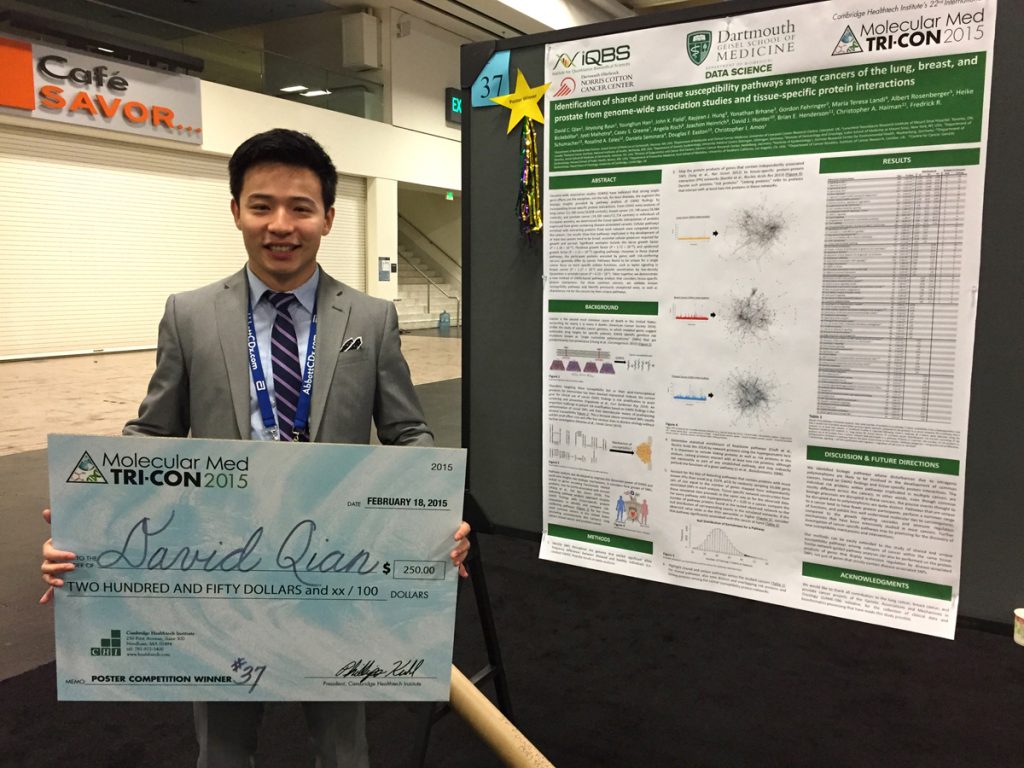
David Qian is a 4th-year MD/PhD student and a 2nd-year graduate student in the Quantitative Biomedical Sciences program. His research in Chris Amos's lab is on the characterization and prediction of risk for common cancers through pathway analysis of genome-wide association studies. David would like to apply his current bioinformatics training to a future career in precision medicine and translational research.
The International Molecular Medicine Tri-Conference is "the industry's preeminent event on molecular medicine, focusing on drug discovery, genomics, diagnostics and information technology. Spanning six days this year, the Tri-Conference is an expanded program that includes 6 symposia, over 20 short courses, and 17 conference programs" (http://www.triconference.com/). The conference poster session featured the work of 114 researchers from industry and academic institutions around the world. David's winning poster abstract:
Genome-wide association studies (GWAS) have indicated that strong single-gene effects are the exception, not the rule, for most diseases. We augment the biologic insights provided by pathway analysis of GWAS findings by incorporating tissue-specific protein interactions. From GWAS meta-analyses of lung cancer (8,945,877 SNPs in 12,160 cases/16,838 controls), breast cancer (7,728,735 SNPs in 15,748 cases/18,084 controls), and prostate cancer (9,760,429 SNPs in 14,160 cases/12,724 controls) among individuals of European ancestry, we determined the tissue-specific interactomes of proteins expressed from genes containing disease-associated variants. Cellular pathways enriched with interacting proteins from each network were compared across the cancers. Our results show that pathways implicated in the development of at least two cancers tend to be broad, essential cellular processes required for growth and survival. Significant examples include the nerve growth factor (P = 1.30 × 10−53), fibroblast growth factor (P = 1.72 × 10−45), and epidermal growth factor (P = 1.21 × 10−43) signaling pathways. However, in these shared pathways, the participant proteins encoded by genes with risk-conferring variants generally differ by cancer. Pathways found to be unique for a single cancer focus on more specific cellular functions, such as leptin signaling in breast cancer (P = 1.17 × 10−6) and platelet sensitization by low-density lipoprotein in prostate cancer (P = 4.23 × 10−6). Taken together, we demonstrate a novel method of GWAS-based pathway analysis that considers tissue-specific protein interactions. For three common cancers, we validate known susceptibility pathways and identify previously unexplored ones, as well as characterize risk for the cancers by their unique pathways.